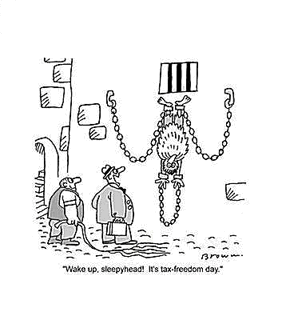 |
More and more investors are being lured by the attractions of spread betting as a means of making money on financial markets and this doesn't come as a surprise
The quick facts on spread betting -:
Spread betting offers the following benefits:
However, the tax breaks make it a serious option for frequent traders/speculators.
Its the beginning of the tax year and Conrad and Rupert both want to speculate on share price movements over a 12 month period. To keep things simple let's assume they do this once a month, reinvesting their profits each time.
Conrad is a spread better, Rupert invests directly in the stock market. Let's say both are incredibly lucky and call the market correctly each time, earning a return of 10% per month. If their initial outlays are £10,000 Conrad will end up with £31,384 at the end of the 12 month period with no tax to pay. Rupert will end up with the same pre-tax profits but just £26,111 after paying capital gains tax. (We've softened the tax blow by assuming that he can make full use of his annual CGT exemption.)
Clearly this example is simplistic. It ignores Rupert's dealing costs and the premium Conrad has to pay to place his bets. It also assumes that Conrad has not geared up. his positions. In other words, if the shares rise by 20% his return is 20% and not some multiple of that. However, these factors do not detract from the all important point:
A successful spread better will end up with much more money than a successful share speculator.It could be argued that spread betters shoulder much more risk than normal investors. The risk in spread betting comes from several quarters, in particular the time limit on bets and the potentially unlimited downside. These risks can be controlled to some extent by the serious speculator looking for a serious alternative to buying shares or other securities directly.
What is not so well documented is the fact that, because of their unequal tax treatment, spread betting can be less risky than direct share investment. Let's return to Conrad and Rupert to see why.
So far Rupert, the share investor, has been reinvesting all of his profits in new trades, even though up to 40 per cent of each months profit belongs to the taxman. There is no risk in doing this, provided all the trades fall within the same tax year. Remember the capital gains tax rules let you offset gains made in one year against losses made in the same tax year.
If Rupert suddenly makes big losses, he can offset these against profits from previous months. trades without any danger of having insufficient funds to settle his annual capital gains tax bill. However, when the trading straddles two separate tax years its a completely different story. Rupert cannot offset losses made in one year against gains made in the previous tax year.
If Rupert uses all his profits from the previous tax year to buy shares at the beginning of the next tax year he is taking a big risk because he is trading with money that does not belong to him but to the taxman.
Alternatively, if he plays it safe and only reinvests his after-tax profits, his returns will be much lower than Conrad's.
Its the beginning of the next tax year and both Conrad and Rupert have £31,384 in their trading accounts. However, there is an important difference. Rupert has a tax bill of £5,274 that has to be settled when he submits his tax return. So in reality he only has £26,111 of his own money with which to speculate. Assuming the same strategies and returns as before, Conrad will end up with £98,497 and Rupert will end up with just £81,944. Rupert is falling behind because he has less capital to invest during the current year. However, that.s not the end of the story. Rupert has to pay tax on these profits as well, leaving him with just £62,892.
In summary both Conrad and Rupert invested in the same shares and earned identical pre-tax returns. However, because Conrad went the spread betting route he ended up with 57% more money!
If your annual trading profits are under £8,200 (or £16,400 in the case of married couples), the spread betting tax break is largely irrelevant as your capital gains will be completely tax free anyway. So only serious traders, or those with significant other capital gains, should consider spread betting purely for tax reasons. As can be seen throughout this book, the humble CGT allowance can throw a lot of clever tax planning ideas on their head.
There has been some speculation in the financial press in recent times that the Chancellor may be considering taxing spread betting profits. There is also the perceived danger that an individual who is regarded as carrying out a trading activity. will fall into the income tax net, even if the profits arise from spread betting. There is no guidance on this issue, and the Inland Revenue has not, to my knowledge, raised this argument yet. The circumstances where such an argument would be raised are likely to be exceptional and the average individual engaging in spread betting would not be at risk.
It is also worth emphasizing the potential risks of spread betting. For one, there is frequently no loss limit. With a holding of shares the most the investor can lose is the original stake. Spread betters could lose much more than this, although some transactions do offer a stop loss facility.
The content of this site is copyright 2016 Financial Spread Betting Ltd. Please contact us if you wish to reproduce any of it.